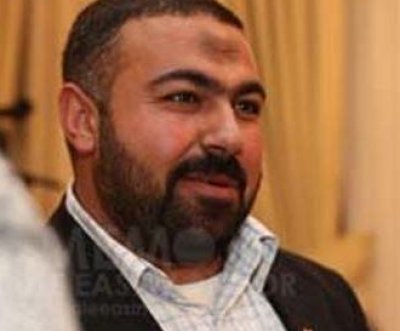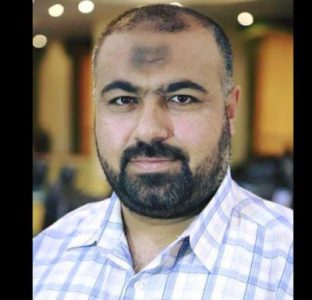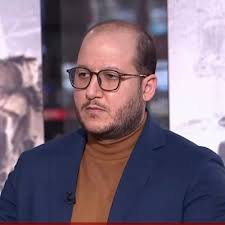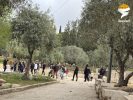Last week Saudi Satellite TV Channel Al Arabiya surprised its audience when it hosted Chief of Hamas Political Bureau abroad Khaled Meshaal. The last time a Hamas official was hosted by this TV Channel was six years ago before the new phase of souring relations between Saudi Arabia and the Palestinian Islamic Resistance Movement.
Regarding aid Meshaal hailed the Saudi Kingdom its people and its rulers asserting that Saudi is a leading supporter of Palestinian rights and the Palestinian cause. He called for the kingdom to regain its positive relations with his movement. At the same time he did not forget to call for Riyadh to release the Palestinian prisoners enduring tough conditions in Saudi jails including Hamas members and leaders.
Throughout the show Saudi Arabia benefitted from Hamas’s praise being the most popular Palestinian faction across Arab and Muslim states considering Saudi’s massacres in Yemen since 2015 its fighting of Islamists in the region and secularizing the kingdom.
It has been known for decades that the parameters of Arabs’ support for their leaders are the latter’s support for Palestine and the Palestinians. Therefore at this stage when Saudi Arabia is facing wide-scale criticism for ignoring the Palestinians during the latest Israeli offensive while Hamas is being hailed and celebrated widely among the Arabs the Saudi regime needed Hamas’s praise and commendation.
Doctoring the recording of the show which was posted on the website of the Saudi channel and cutting the clip when Meshaal called for Saudi Arabia to release Hamas and other Palestinian prisoners from its jails is evidence that Saudi required only positive remarks and praise from Hamas. However the appearance of the senior Hamas leader could be a hint towards a new stage of good relations between the two sides.
Political analyst Mustafa Al-Sawwaf told me: “Any good relationship between Hamas and Saudi Arabia would be more useful to Saudi than Hamas.” Al-Sawwaf stressed that the recent Saudi hostility towards the Islamic movements including Hamas and the Muslim Brotherhood the most popular Islamic factions among the Sunni Muslims in the Arab and Islamic countries harmed the kingdom’s reputation. In addition he explained that Riyadh’s secularizing of the kingdom also damaged its reputation.
“Therefore Saudi is in an urgent need to wash its shame mainly after the recent disagreement with the UAE and being ignored by the new American administration” Al-Sawwaf asserted. “Any good relations with Hamas mean that Saudi Arabia started to return to its symbolic role among the Sunni Muslims across the world” he affirmed.
Speaking with a senior Hamas leader in Gaza I recognized that there has been a shift but it is not however a breakthrough. “There are some changes in the relations with the kingdom” he told me. “We can call them positive changes but we cannot describe them as practical changes that could lead to better relations in the near future.”
Al-Sawwaf indicated: “Al Arabiya asked Meshaal to attend the show and this proves that there is something new being knitted behind the scenes” but he emphasized: “It is too early to say that what is going on is a beginning of regaining good relations between the two sides.”
On this point Palestinian political analyst from Ramallah Ismat Mansour informed me that Hamas has several times kept its achievements hidden until the last phases. He said that Saudi Arabia prefers good relations with the Palestinian Authority (PA). However: “I am not ruling out that Hamas might surprise us with a sudden declaration of resuming good ties with the kingdom which has started to regain its role as the leader of the Sunni Muslims and the largest supporter for the Palestinian cause.”
Saudi Arabia hosted Muslim Brotherhood members and leaders from different Arab countries including the Palestinians since the early creation of the Islamic Sunni group in Egypt. In 1988 less than a year after Hamas’s creation the senior Hamas leader Musa Abu Marzouq met with Saudi intelligence officials and agreed to open an office for the movement in Riyad.
In 1997 during the visit of Hamas founder Sheikh Ahmed Yassin to the kingdom Saudi royals donated millions to the movement. The late Saudi king praised Sheikh Yassin and encouraged him to carry on fighting the Israeli occupation and not to wait for Arab leaders to end the occupation.
By the start of Al-Aqsa Intifada in 2000 Saudi Arabia generously supported the Palestinians through hundreds of Hamas charities but following the 11/9 attack of the US Twin Towers and as part of the so-called “war on terror” Saudi Arabia came under US pressure and cracked down on the charities supported by Hamas and channeled support to the Palestinians through Fatah and UNRWA instead.
In 2007 Saudi Arabia became angry with Hamas after the breakdown of a Saudi-brokered Fatah-Hamas reconciliation deal as Fatah leader Mahmoud Abbas persuaded Riyadh that Hamas was responsible for the deterioration of the agreement.
A few years later following the Arab Spring which led to the ousting of a number of Arab leaders including the late Egyptian President Hosni Mubarak and others Saudi Arabian rulers adopted a hostile position towards the Arab Spring revolutions fearing the effect on them. Therefore they launched a fierce war on the Muslim Brotherhood which thanks to the revolutions ruled Egypt.
Hamas as an offshoot of the Muslim Brotherhood candidly and proudly declared its relationship with the group and its leaders visited Cairo and met with the new Egyptian President Mohamed Morsi who was a senior Muslim Brotherhood leader. This pushed Saudi Arabia which banned the Muslim Brotherhood following the military coup on Morsi and the violent crackdown on his supporters to sever ties with Hamas due to its relationship with the group. Saudi Arabia detained Hamas leaders and members including the former head of Hamas abroad Maher Salah.
In 2015 when Saudi Arabia wanted Hamas’s support for its war in Yemen Riyadh invited Meshaal who met with King Salman and other officials. He issued a statement in support of the Saudi operation in Yemen and Riyadh released Hamas officials and members upon his request.
Later the Saudi regime cracked down on Hamas and its leaders and members in the country but Hamas kept silent in an attempt to repair ties. However in a brief statement issued in 2019 Hamas announced that Saudi Arabia had detained its activists including its representative Mohammed Al-Khodari 81 who had an official office in the country. In March 2020 the Saudi judiciary claimed that Hamas members inside Saudi prisons “are terrorists”.
If Saudi Arabia is truly interested in playing a significant role in the Palestinian cause it should maintain good ties with Hamas because it has been for years the largest strongest and most popular Palestinian faction on the ground. All the decades-long attempts to exclude it from the political arena as well as the bets on the other factions have failed. Therefore Saudi Arabia and other countries interested in the Palestinian cause must review their stances towards Hamas and work to involve it in their plans related to the Israeli-Palestinian conflict.
– Motasem A Dalloul is MEMO’s correspondent in the Gaza Strip.













